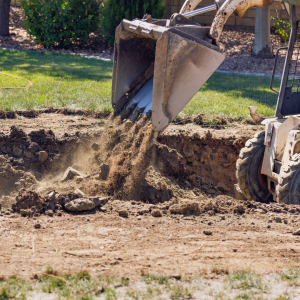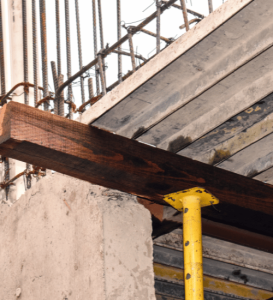Grading is a crucial step in the construction process, often performed at the start of a project to ensure the land is properly prepared for building. It involves reshaping and leveling the ground to create a stable foundation for structures, improve drainage, and ensure proper site elevation. Without grading, construction projects can encounter issues like flooding, soil erosion, and uneven settling, leading to costly repairs or structural failures.
Why Is Grading Important?
-
Foundation Stability: The success of any building begins with a solid foundation. Grading ensures that the ground is level and compact, preventing future shifting that could cause cracks or settling in foundations.
-
Drainage Management: Proper grading helps control water flow around the construction site. A well-graded site directs water away from buildings, reducing the risk of flooding or water damage. This is especially important in areas like Tacoma, WA, where heavy rains can cause significant issues if drainage is not properly handled.
-
Erosion Prevention: In regions with steep slopes or loose soil, grading is essential for preventing soil erosion. By reshaping the land, grading reduces the risk of landslides and sediment run-off, which can damage properties and the surrounding environment.
-
Improved Aesthetics and Usability: Beyond structural integrity, grading also enhances the visual appeal and usability of a property. It helps create smooth transitions between various parts of a landscape, making it easier to install driveways, sidewalks, and other outdoor features.
Types of Grading
-
Rough Grading: This is the initial stage of grading, where large-scale land reshaping takes place. The goal is to approximate the desired elevations and slopes for the site. Heavy machinery is typically used to remove or add soil as needed.
-
Finish Grading: After rough grading, finish grading fine-tunes the land’s surface, ensuring a smooth and level area. This step is essential for landscaping, laying sod, or installing hardscaping features. Finish grading ensures proper drainage and aesthetics.
-
Slope Grading: For sites with varying elevations, slope grading is critical to maintain stability. It involves creating gentle inclines or declines to ensure that water flows away from the building and doesn’t pool around the foundation.
-
Drainage Grading: Drainage grading focuses specifically on managing water flow. It involves creating channels, slopes, and drainage systems to prevent water from accumulating around structures.
Grading for Different Types of Projects
Grading is necessary for a number of different construction projects, helping prepare the land for further development. When building homes, grading ensures that the foundation is level and the yard slopes appropriately to prevent water from flooding basements or crawlspaces. For larger commercial sites, grading is critical to ensure large areas, like parking lots or outdoor facilities, are functional and drain properly. Grading is also essential in landscaping to create visually appealing and functional outdoor spaces, from sloping lawns to terraced gardens.
The Grading Process
-
Site Survey: Before grading begins, a site survey is conducted to assess the existing conditions of the land, including elevations, soil composition, and any obstacles like trees or rocks.
-
Grading Plan: A grading plan is then developed by engineers or architects, which outlines the required changes to the land’s shape, slope, and drainage patterns.
-
Excavation and Soil Movement: Heavy machinery is used to excavate soil, fill in low areas, or remove excess earth as needed to meet the grading plan’s specifications.
-
Compaction: The soil is compacted to ensure stability and prevent future settling. Proper compaction is critical for the foundation and drainage systems.
-
Final Inspection: After grading is complete, a final inspection is done to verify that the work meets the grading plan and local building codes.
Grading is one of the most important steps in any construction project, providing a stable foundation, controlling drainage, and preventing future issues. Whether you’re planning a new build or a landscaping project, proper grading ensures long-lasting results and protection against the elements. At Broussard Home Services, we understand the importance of expert grading in ensuring the success of your project. Reach out to us for professional construction services in Tacoma, WA!





